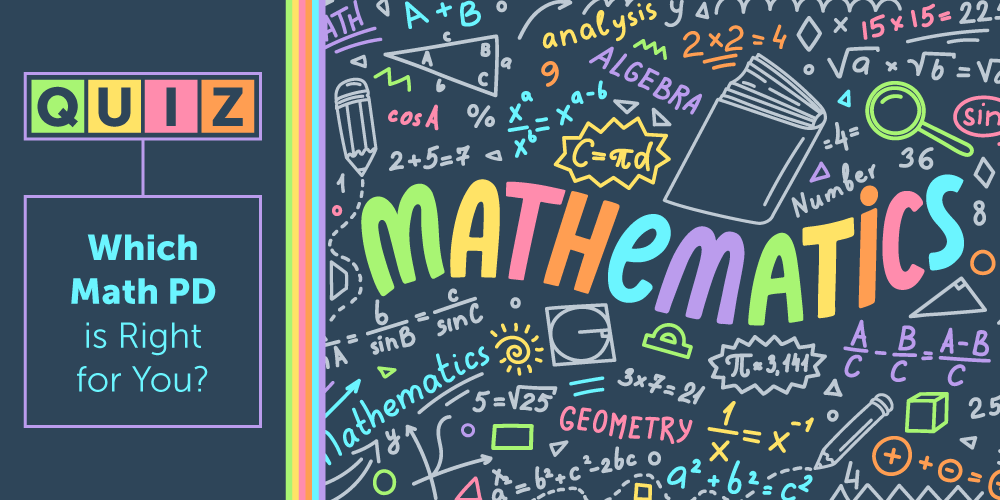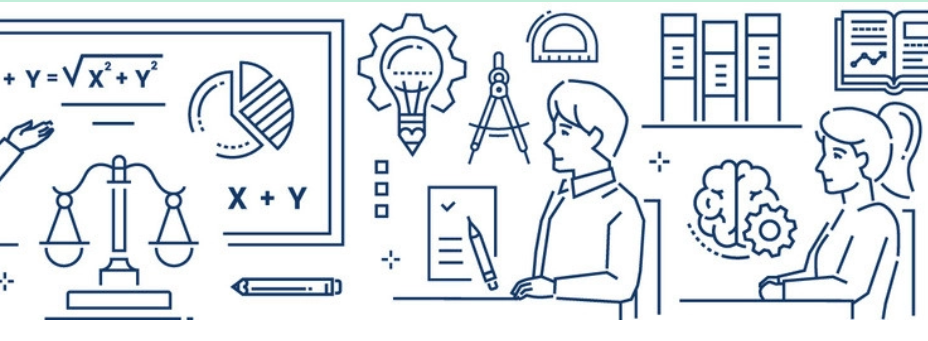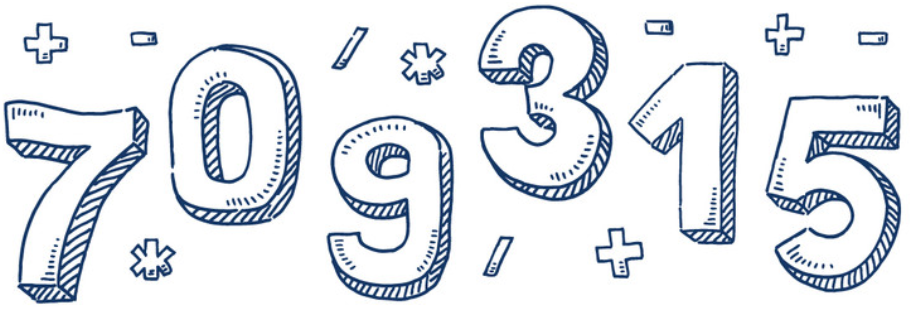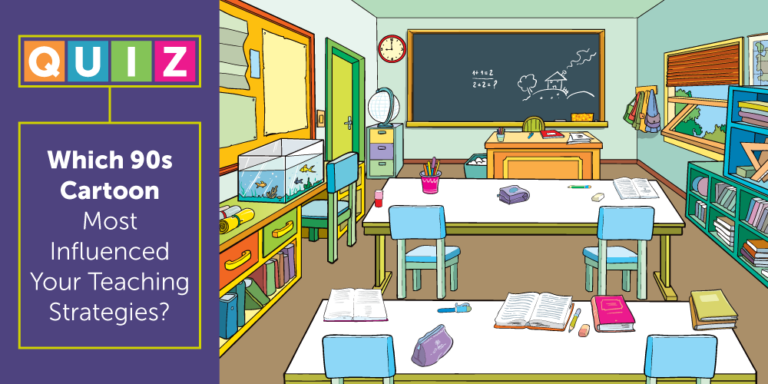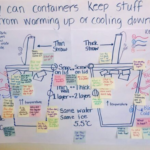Albert Einstein, that no-name theoretical physicist with seemingly uncombable hair, once christened mathematics as the poetry of logical ideas. No doubt math teachers such as your lovely self understand that your subject serves as a universal language, connecting all continents and cultures via a shared, uniform process. Moreover, math skills mean students gain the power to land important careers after leaving the classroom.
Despite the subject’s ability to open gateways to a brighter future, more than 80% of high school seniors score below the threshold of math proficiency. Math teachers work tirelessly to reverse these trends, and to support them in this mission, we’ve designed a number of custom professional development courses that deliver tools and methodologies that create more positive outcomes.
So, which math PD is right for you?
Which of the following scenarios sounds best to you?
What do your students struggle with most in math?
If you could teach your students one thing, you’d want them to know that…
You wish administrators and decision-makers understood that…
Mindsets and Math: Enjoyment and Achievement for All
It’s time for a mindset makeover in math! Unleash student potential by moving students from a “fixed” to a “growth” mindset about math, and watch them connect with math concepts head-on. After this course, educators will be able to create a classroom environment of growth mindset in math by: evaluating the math tasks and questions they ask, handling the way mistakes are dealt with, grouping appropriately, creating classroom norms, and applying the strategies to fulfill mathematics potential and engagement.
Ed Tech for the Math Classroom
Explore strategies and frameworks that can help you use technology tools effectively, and learn about different tools and the ways teachers are using them. When you infuse technology in your math instruction, you are helping prepare students to navigate an increasingly complex digital world.
Exploring Real-World Connections in Math
Explore the concept of growth "mathematical mindsets" and how they can counter math myths and misconceptions. You’ll create a SMART Goal for inclusive math instruction, review strategies to increase culturally mindful contexts and relevancy in your math instruction, and discuss various ways to infuse mathematical modeling in your teaching.
Using Literature to Enhance Mathematical Learning
This course explores the relationship between storytelling and mathematics, equipping you with skills to enhance math instruction through literature. You will analyze and categorize children’s literature to identify texts suitable for application in math classes and determine how to include literature in meaningful math tasks. You will design plans for integrating read-aloud sessions with math students, and implement strategies to support student learning in math with literature.
Math Fluency Beyond the Basic Facts
In this course you’ll challenge the traditional narrative of fluency, expanding your understanding to include flexibility with numbers, strategy selection, reasoning, and creativity. Perfect for anyone that teaches or supports K-8 mathematics, this course balances relatable research with usable activities to help you shift your classroom practices and assessments toward a fluency approach.
